Future Tense 3.0
April 27, 2024
Speakers
Jeffrey Barrett
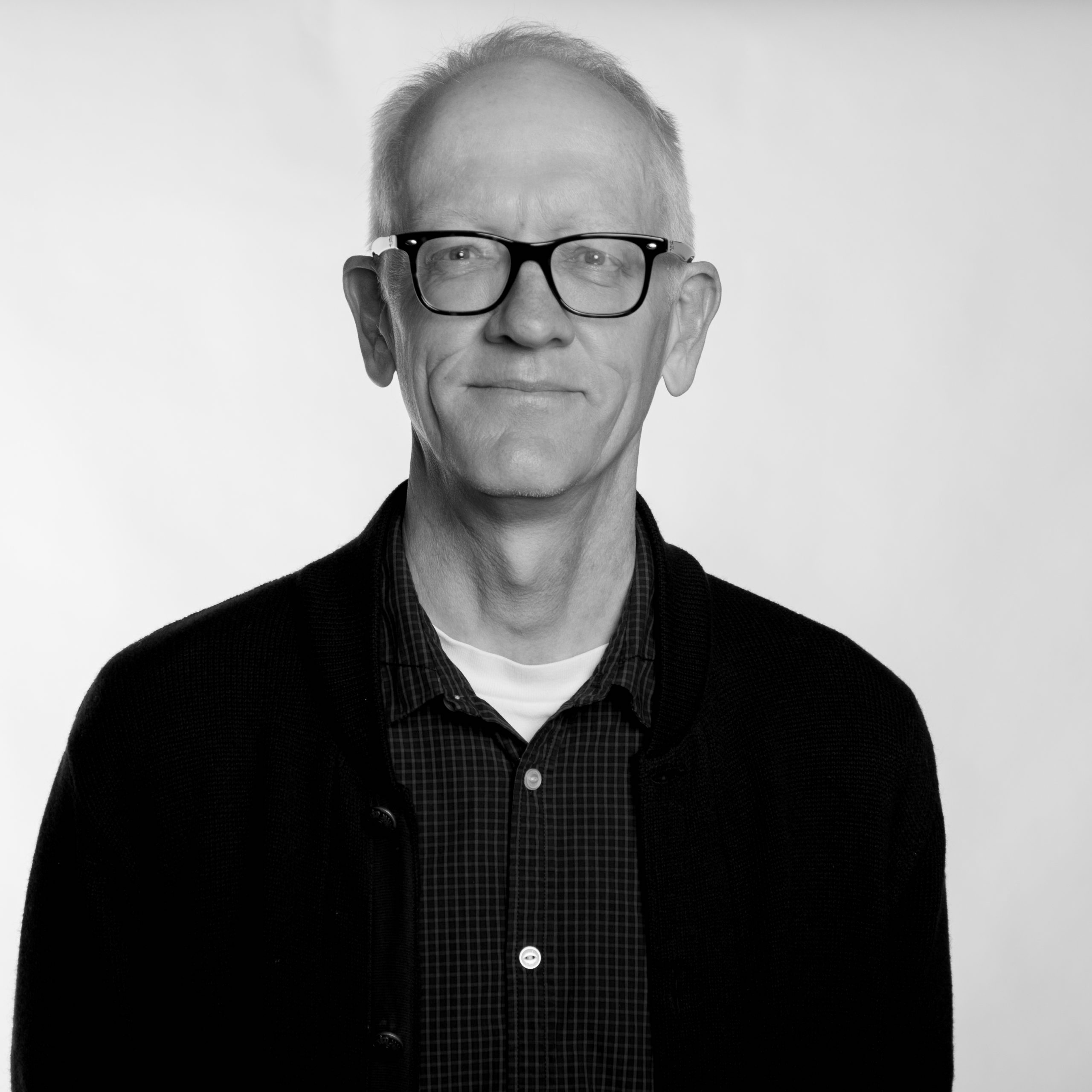
Jeffrey Barrett is Chancellor’s Professor of Logic and Philosophy of Science at the University of California, Irvine. In addition to his roles as a researcher and professor, Jeffrey serves as a primary advisor to the Future Tense project. Jeffrey holds masters and doctorate degrees in philosophy from Columbia University, is the author of five books and anthologies, including The Conceptual Foundations of Quantum Mechanics, published in 2020, and is the current Fellow of the American Academy of Arts and Sciences. His research concerns the philosophy of science; philosophy of physics; epistemology; game theory, decision theory, and rational choice.
Photo courtesy of Jeffrey Barrett.
Chico MacMurtrie
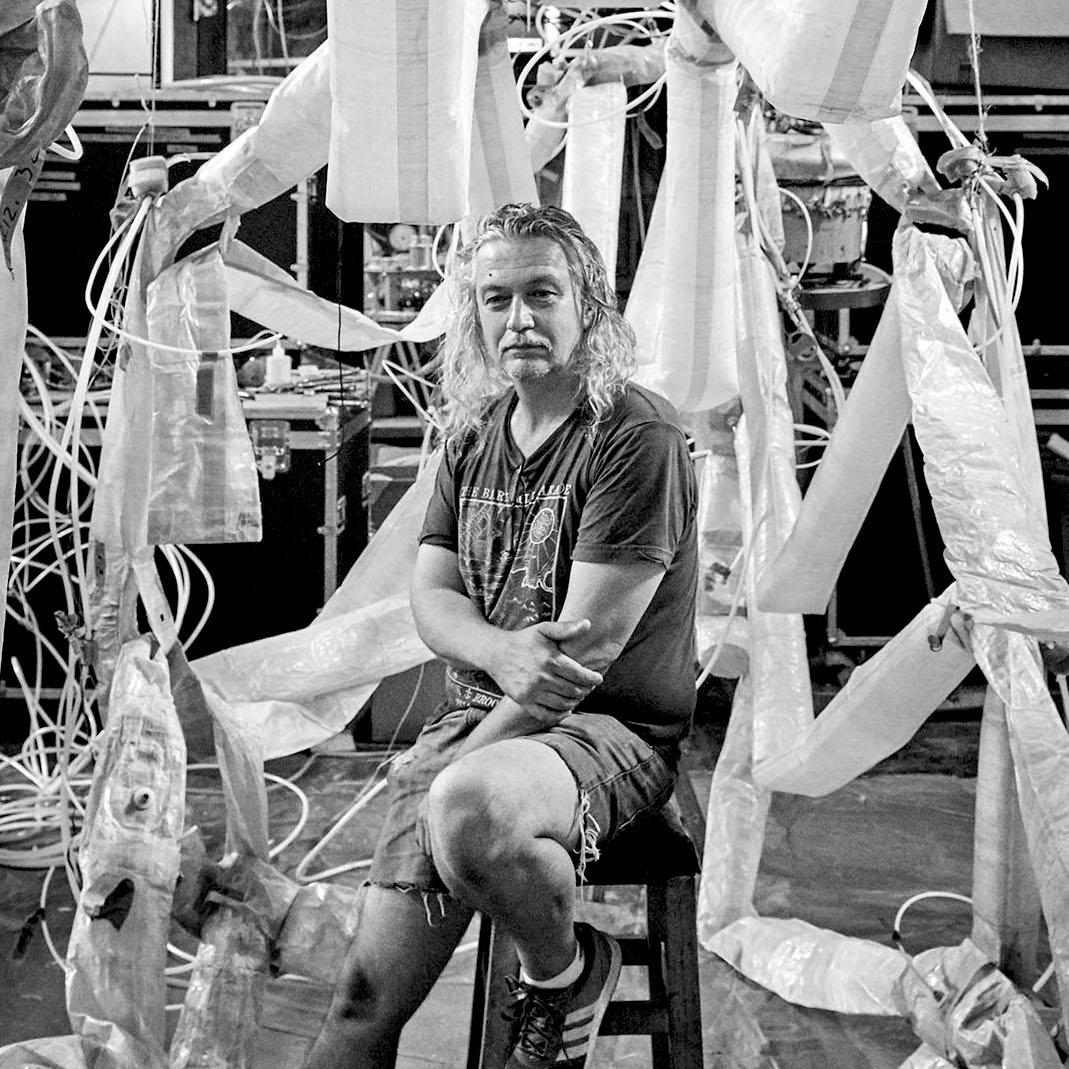
Chico MacMurtrie is internationally recognized as a pioneer of art and robotics. He founded the interdisciplinary collective Amorphic Robot Works, dedicated to the research and development of his experimental, anthropomorphic, computer-controlled sculptures which evolved over the years into a “Society of Machines.” MacMurtrie was awarded the Guggenheim Fellowship in 2016 with his Border Crossers project, a public performance series on both sides of the US-Mexico border involving a series of inflatable, border-crossing robotic sculptures.
MacMurtrie continues his investigation of soft robotics into his current Black Box residency project, Dual Pneuma, a four-limbed robot with an inflatable musculature and semi-autonomous capacities of movement. The project is being developed with support from the UC Irvine Beall Center for Art + Technology, Creative Capital, the UCSD Jacobs School of Engineering, and NYU Tandon School of Engineering.
Photo by Andrew Boyle for NeueHouse, 2019.
Laura Splan
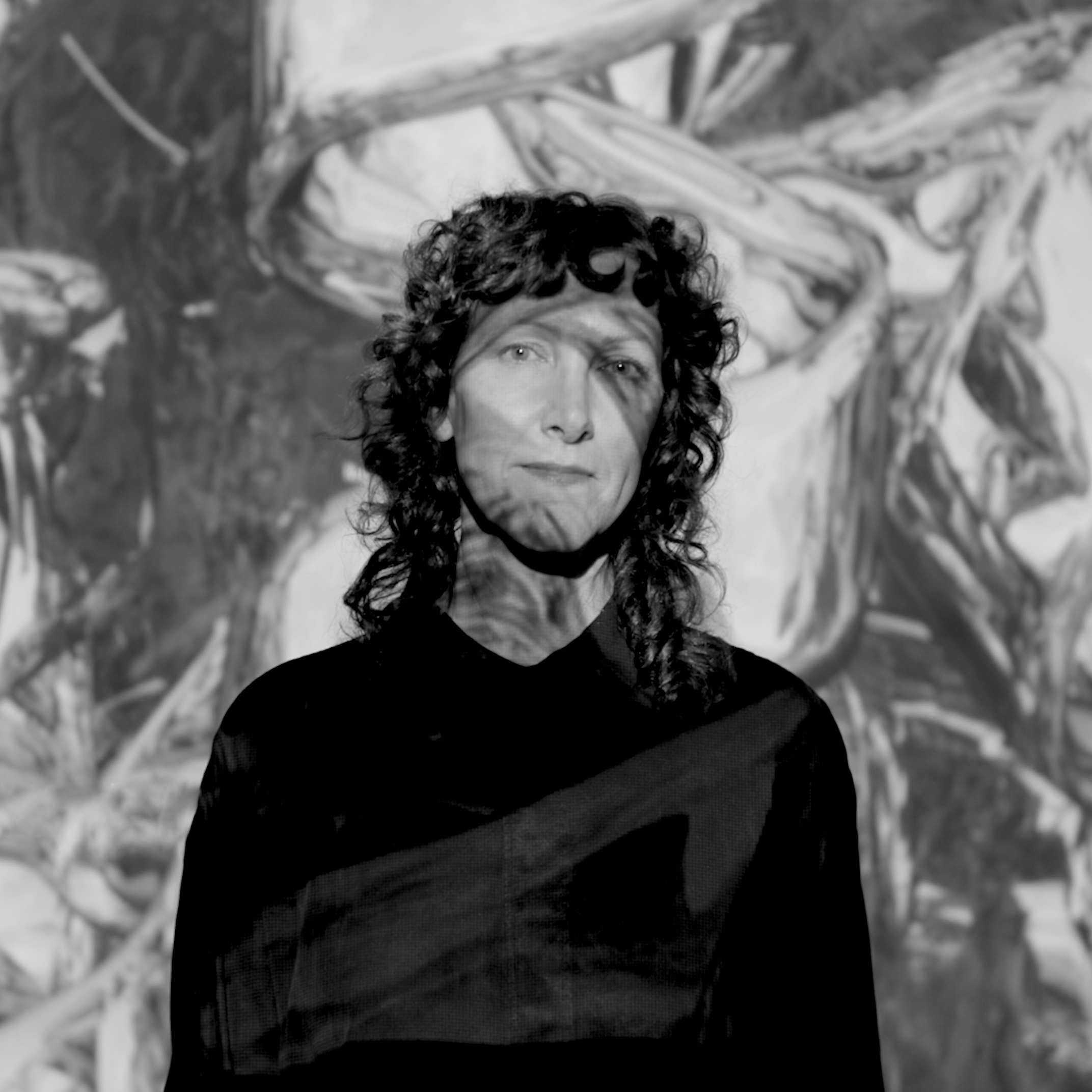
Laura Splan is a transdisciplinary artist working at the intersections of Science, Technology, and Culture. Her research-based studio practice and collaborations with scientists culminate in multimedia exhibitions that reframe artifacts of the posthuman landscape to unravel entanglements of natural and built systems. Splan has been honored with awards and residencies from the National Endowment for the Arts, Harvestworks Digital Art Center, Coalesce Center for Biological Arts, and Japan International Film Festival, among other institutions, and has exhibited in over 50 national and international shows.
Splan’s Black Box Residency project, Baroque Bodies (Sway), uses emerging epigenetic research on environmental influences on gene expression along with computational and digital technologies to connect micro and macro worlds. Splan’s project is being developed in collaboration with UCI epidemiologist Hannah Lui Park, creative technologist Danielle McPhatter of the EY Metaverse Lab, and theoretical biophysicist Adam Lamson of the Flatiron Institute.
Laura Splan in her studio. Photo courtesy of the Simons Foundation Science, Society & Culture Division.
Pier Luigi Capucci
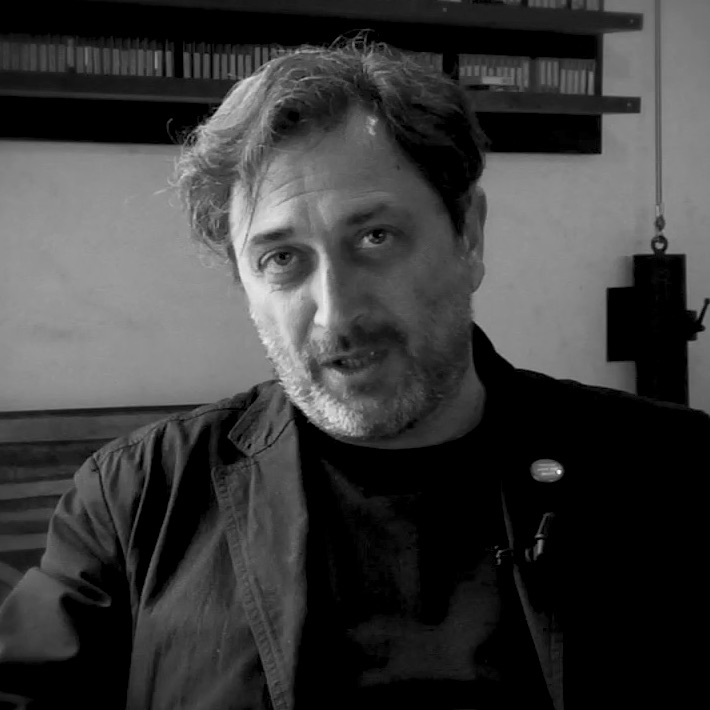
Pier Luigi Capucci has been a leader in the international field of art-science since the 80s. His theoretical activity is concerned with technologies of representation and communication and with technoscience-based art forms. Currently, Capucci serves as Director and Coordinator of the Scientific-Cultural activities at LABA (Free Academy of Fine Arts) Rimini. He additionally founded and directed the first Italian online magazine, NetMagazine, later MagNet, on the relationships between arts, technologies and society. In 2000, he founded Noema, an online journal and network of projects on the relationships among arts, sciences, technologies and society. He is the founder and curator of the three-year art*science – Art & Climate Change research project on art and climate change.
Photo courtesy of Pier Luigi Capucci.
Joost Rekveld
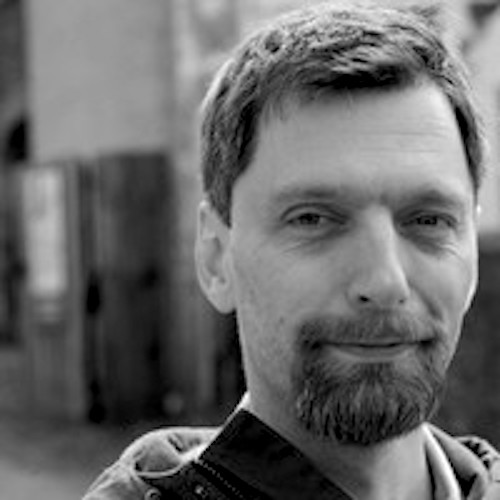
Joost Rekveld is an artist who is motivated by the question of what we can learn from a dialogue with machines. Since February 2017, Rekveld has been affiliated to the School of Arts, University College Ghent, as an artistic researcher. In his work, Rekveld explores the sensory consequences of systems of his own design, often inspired by forgotten corners in the history of science and technology. These systems combine temporary dogmas in the form of procedures or code, with more open-ended elements such as material processes or networks of interactions that are too complex to predict. Joost’s abstract films have been shown in a wide range of international festivals and venues for experimental film, animation or other kinds of moving images.
Photo courtesy of Joost Rekveld.
Caroline A. Jones
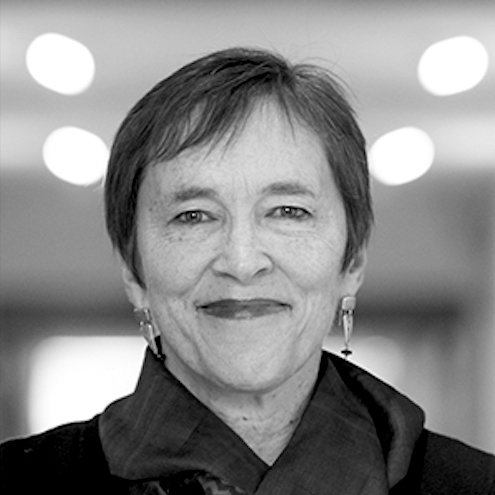
Caroline Jones is an art-science scholar and advisor to the Future Tense project. Trained in visual studies and art history at Harvard, she did graduate work at the Institute of Fine Arts in New York before completing her PhD at Stanford University in 1992. Caroline is the recipient of fellowships from the National Endowment for the Humanities and the John Simon Guggenheim Foundation (among others), and has been honored by fellowships from institutions including the Radcliffe Institute for Advanced Studies, and the Max Planck Institüt (2001-02), the Institute for Advanced Studies in Princeton, and the Stanford Humanities Center.
Photo courtesy of Caroline A. Jones.
Gail Wight
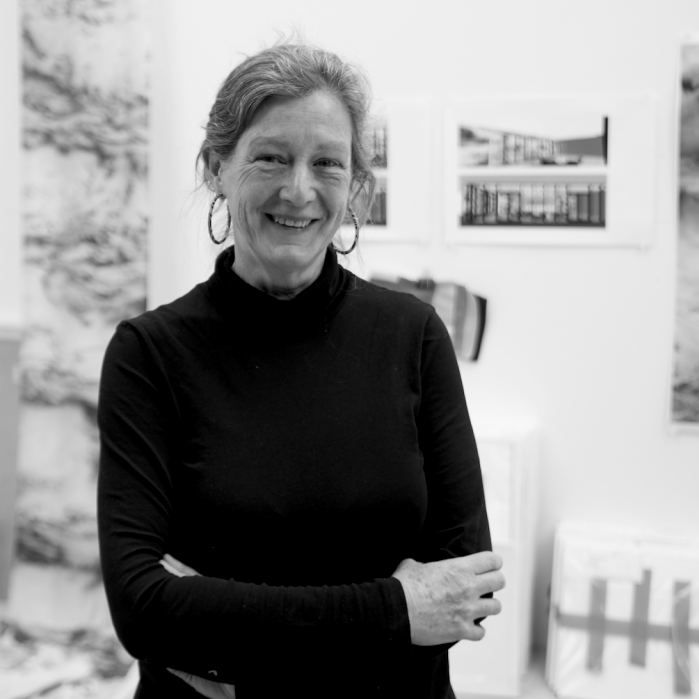
Gail Wight is an eminent artist known internationally for her research explorations between biology, geology, and media art. She is an Emerita Professor at Stanford University, where she has taught since 2003. Her collaborations with scientists have explored such wide inquiries as the symbiotic relation between gut microbes and the mind, the effects of wind in color theory, and the alien timescapes of lichen. Besides nearly two dozen solo exhibits throughout North America and Great Britain, Wight’s work is featured in Information Art by Stephen Wilson, Art in the Age of Technoscience by Ingeborg Reichle, and Evocative Objects by Sherry Turkle, among other groundbreaking anthologies.
Gail’s Black Box residency project studies the ostracod, a ubiquitous crustacean present in water and on land which is evolving with astounding speed in response to climate change. Her project is being developed with the Hadly Lab at Stanford University, and with researchers of the United States Geological Survey.
Photo courtesy of Silicon Valley Laureates Artist Laureate Awards, 2018.
Cesar & Lois
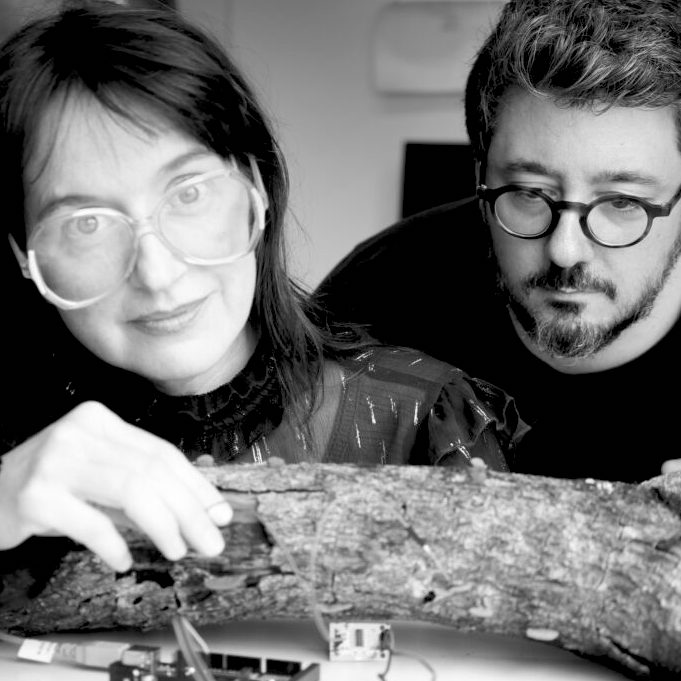
Cesar & Lois is an art collective that probes humanity’s relationship to the planet by blending technological, biological and social systems. Consisting of Lucy HG Solomon (California) and Cesar Baio (Brazil), the collective “develops projects that examine sociotechnical systems, attempting to challenge anthropocentric technological pathways while linking to intelligences sourced in biological circuitry.” Cesar & Lois have been recognised by the 2024 Aesthetica Prize, 2023 Lumen Prize, 13th Mercosul Biennial, 2019 NTU Global Digital Art Prize, among others.
Their Black Box residency project, Being hyphaenated (Ser hifanizado), is an artwork-as-ecosystem that performs the complex interactions across species that are the basis for a balanced planet. The sculpture consists of an array of cocoons hosting communities of living microorganisms which are connected to each other by their respiration. Being hyphaenated is being developed in conversation with Kathleen Treseder of UC Irvine’s Treseder Lab.
Photo courtesy of Cesar & Lois.
María Fernández
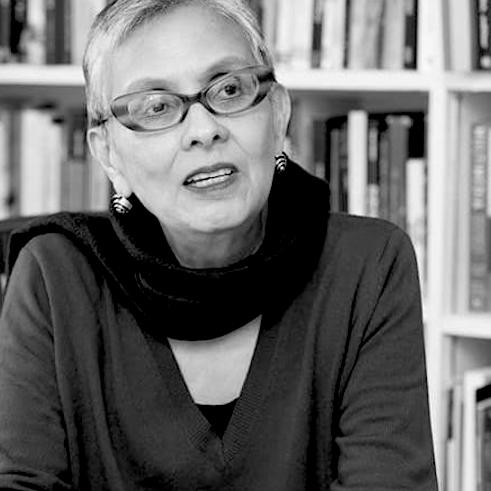
María Fernández is an associate professor at the Cornell Department of History of Art & Visual Studies. Her research and teaching concern three areas and their intersections: the history and theory of digital and new media art, Latin American art, and feminist media art, with attention to postcolonial/decolonial theories. She is the author of Cosmopolitanism in Mexican Visual Culture (Texas University Press 2014), for which she won the Arvey Book Award by the Association for Latin American Art in 2015. She is now writing a book on the work of British cybernetician Gordon Pask, and on the contributions of women artists working in new media to posthumanism and new materialisms.
Photo courtesy of María Fernández.
Ellen K. Levy
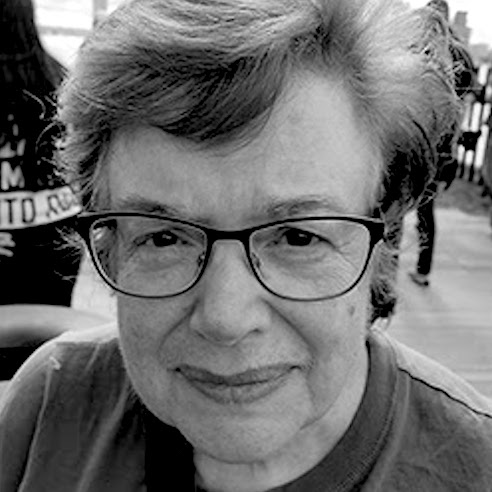
Ellen K. Levy was co-curator of the 2002 traveling exhibition, Complexity, and is an advisor to the Future Tense project. Levy is a multimedia artist and writer known for exploring art, science and technology interrelationships since the mid-1980s. Her works explore complex systems and some of the unintended consequences of technology. She was President of the College Art Association before earning her doctorate from the University of Plymouth on the art and neuroscience of attention. She then was Special Advisor on the Arts and Sciences at the Institute for Doctoral Studies in the Visual Arts. Levy has additionally received an AICA award, an arts commission from NASA following, and a solo exhibition at the National Academy of Sciences (NAS) among other prestigious honors.
Photo courtesy of Ellen K. Levy.